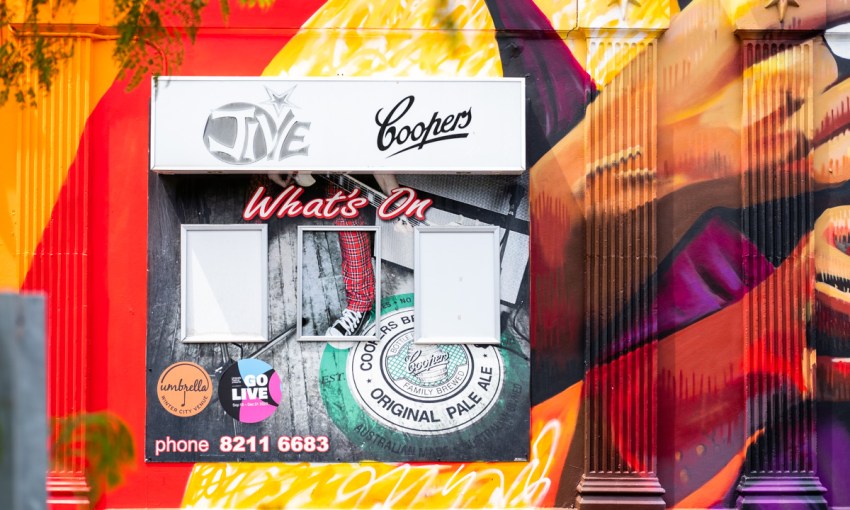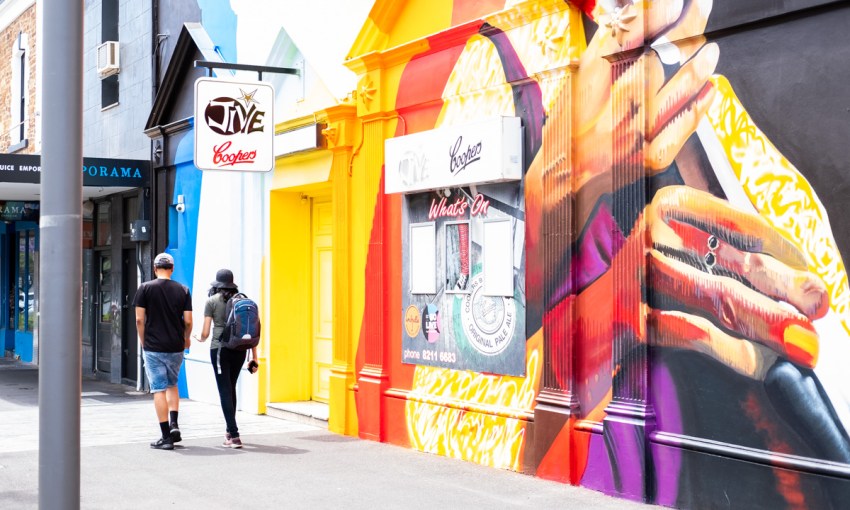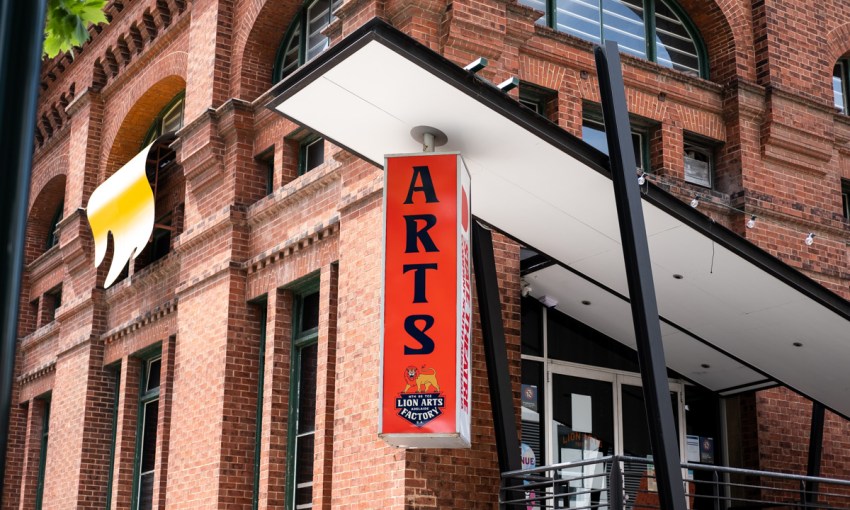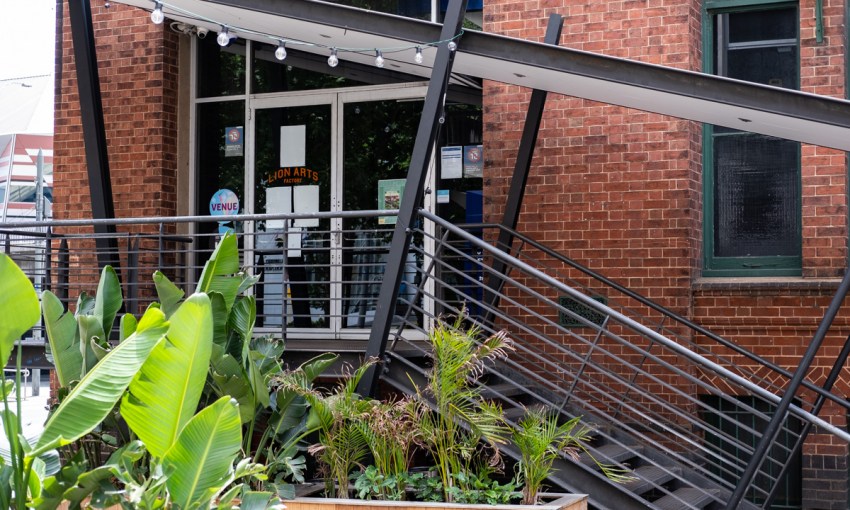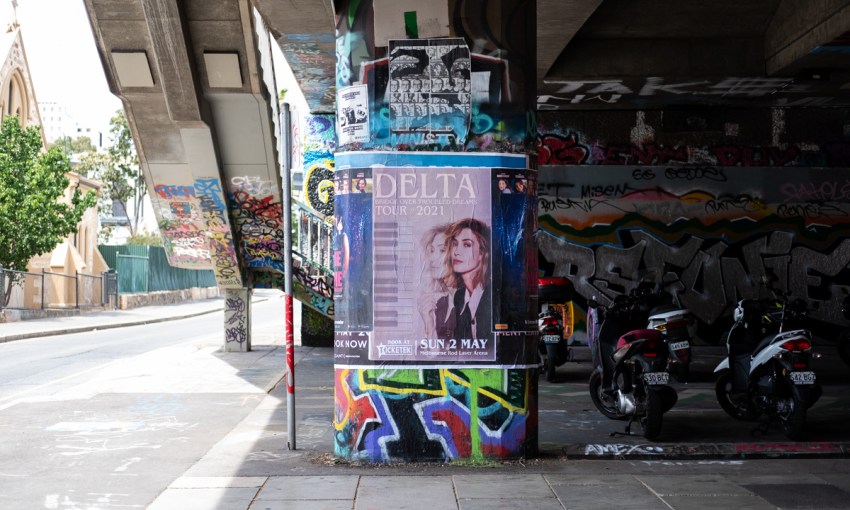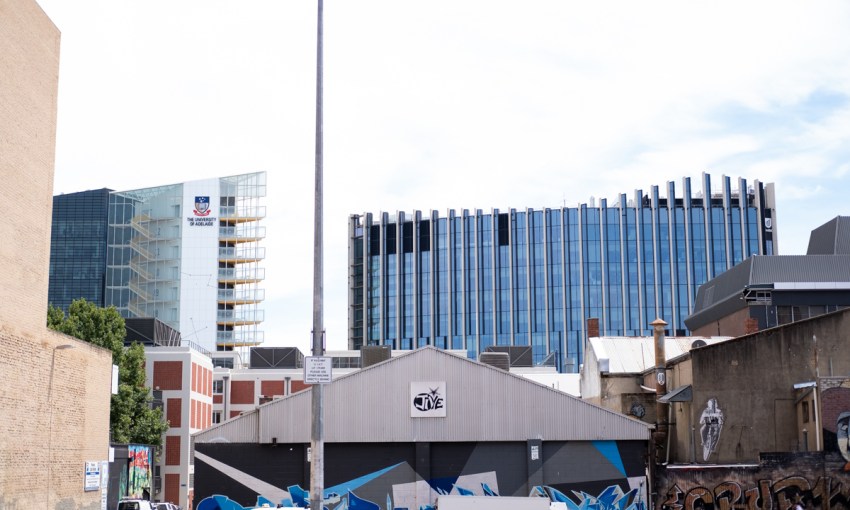While a path out of the November lockdown has been announced, the impacts have already been felt by Adelaide's live music venues, which have still yet to recover from the March shutdown.
Adelaide live music venues have already felt the pain of the second lockdown
SPECIAL REPORT: COVID-19 ADELAIDE
Even before the dual punch of coronavirus announcements this week, resulting in all South Australians, except for those deemed essential workers, sent into lockdown because of false information given to SA Health contact tracers, Adelaide’s live music industry was struggling to regain its footing.
After the first coronavirus lockdown, back in March, Jive owner and operator Tam Boakes had vowed not to reopen her venue until all restrictions were lifted.
Visit SA Health for more information relating to the COVID-19 pandemic.
Visit our sister publication InDaily for news updates.
If the COVID-19 news cycle is affecting your mental health and wellbeing, call the SA COVID-19 Mental Health Support Line on 1800 632 753.
This article has been updated.
In July, when physical-distancing requirements were relaxed to one-person-per-two-square-metres, and the stand-up consumption of alcohol was allowed, she decided to restart the venue.
Two weeks later, the rule stipulating the seated consumption of alcohol was introduced, which severely reduced Jive’s ability to draw revenue from its gigs. But, having gone through the reopening process already, Tam decided it was too costly to go through another shutdown.
In the months since, it’s been a process of Tam frantically trying to keep her head above water.
“It’s been tough. It’s definitely not ideal, but we kind of made it work as best we could,” Tam tells CityMag.
“We could do 100 people, and as long as we got those 100, the shows were almost viable, and at least had a really good vibe. People were really supportive.
“And with the layout of Jive, it had a really nice, cosy atmosphere still, so it didn’t feel sparse. It was like being in a big lounge room, really. A bit of a house party. So it sort of worked.”
Unlike some live music venues, Jive operates strictly as a performance space. There is a bar, but no lounge or seating space separate to the stage, and no kitchen to provide a separate hospitality offering. The only way for the business to make money is to book bands, charge entry, and sell beer.
“Literally, we don’t open unless there’s bands playing, so it doesn’t have that vibe of, ‘Hey, it’s free, go sit and the bar and you might have some background music.’ People come and they pay to see that band, and then they go home,” Tam says.
On the Friday before this week, 13 November, Tam was feeling optimistic, as there had been talk in the industry that this week would bring the announcement of stand-up drinking being permitted.
Instead, on Monday, 16 November she made the decision to close Jive once again, for at least two weeks.

Tam Boakes. This image: Julian Cebo
Tam is running the venue with no support from JobKeeper, but Jive has received a $10,000 cash injection from the State Government earlier in the pandemic, and $20,000 from the Music Development Office.
The venue was also given a grant to repaint the front of the building, all of which, though, went to the artist.
“[The State Government and MDO grant] just covered those expenses of that immediate closure,” Tam says.
“There’s quite a few funding [opportunities] in the works that we’re waiting on, that rounds are open for now, so we’re waiting for them to receive them and think about who’s going to get it.
“I’m hopefully, but I don’t know. Every grant round is very, very competitive, so you like to go in with the attitude that there’s something coming, but I’ve got no certainty.
“But still, it’s not going to be enough. We need restrictions to be lifted, that’s the only way forward. Us venues, we can’t trade like this.”
Jive has hosted gigs every Friday and Saturday night since reopening, with those two days a week the only chance Tam’s had to recoup losses.
Since this week’s announcements from the State Government, she’s had tour bookings as late as March calling to reschedule for later in 2021.
An end to the lockdown was announced on Friday, 20 November, with stay-at-home orders lifted from midnight Saturday (aka 00:01 Sunday, 22 November), with venues still capped at 100 people and operating with the one-person-per-four-square-metre rule in place.
This is still not a workable solution for Jive.
“It’s still four-square-metre density, so I’m back to where I was on Tuesday, being closed until they lift that four-square-metre rule. I guess we’ll know later today and tomorrow how quickly that one might lift, but I’m still not going to be able to reopen,” Tam says.
“And, of course, I’ve cancelled all of those gigs anyway, so I wouldn’t be able to open because I don’t have any shows.”
Tam has kept dates locked in for shows Jive has booked in December.
The Police Commissioner flagged during the press conference on Friday that “we are also aiming, on the basis that we are able to put a ring fence around this current level of activity, that we will revert to where we were last Friday, in terms of the level of restrictions we had in our community, on the 1st of December, at the same time we are planning to relax borders for the Victorian/South Australian border.”
This level of restrictions – one-person-per-four-square-metres, and seated drinking – are workable for Jive, but far from ideal.
“There’s still that long-term issue of, we’re still not in a great spot, even without the standing drinking,” Tam says.
“We desperately need that to try and get back to just break-even trading, really. So fingers crossed.
“I’d like to see maybe with this really big cock up that might be one of the first things they look at bringing back to try and help things. But I don’t predict anything at the moment.”
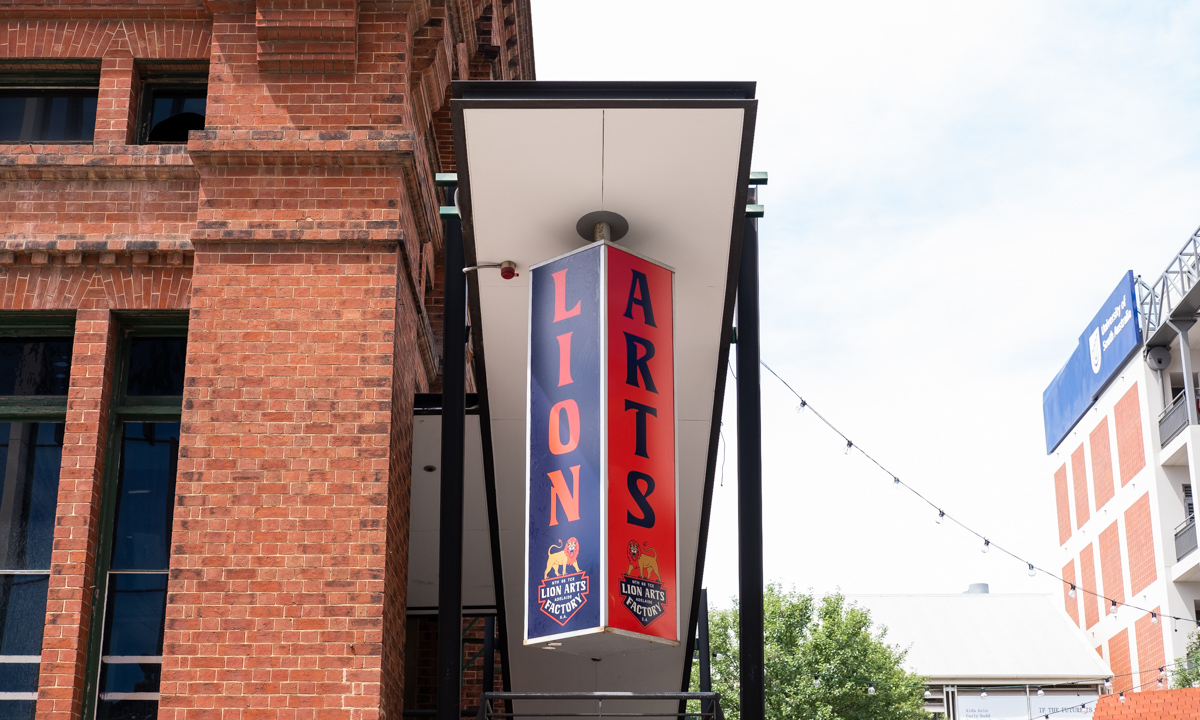
Five Four Entertainment and Lion Arts Factory co-founder Craig Lock had similarly high hopes for this week, before Monday’s and Wednesday’s announcements.
“We were actually pretty buoyant that there might have even been standing and drinking, or potentially even drinking and dancing, with ticketed shows at 150 people,” Craig says.
“We’d actually been working with SA Health in trying to get that to happen, so we felt that that was quite close to happening. Everything was looking really positive, and [then everything went] back down to the worst possible scenario again.”
Lion Arts opened early and enjoyed decent trade as one of the only music venues operating in the city back in May, under a private-bookings-only arrangement, and then hosting gigs in June as restrictions eased.
“When we were booking local bands, when things first opened up again, they were selling double the number of tickets than they would normally sell in a non-COVID environment. The popularity of it essentially doubled,” Craig recalls.
Just as in the case of Jive, though, the rule stipulating the seated consumption of alcohol, and changes to the kinds of private functions that could occur, meant Lion Arts Factory’s trade was significantly hampered.
And eventually, crowds started to dwindle as bars and restaurants also opened in the city, and the venue ran out of local bands to book.
“Every local band had played two or three times at different venues around town, so [the audience’s] excitement around seeing those bands was essentially gone,” Craig says.
“But we thought that if we could get touring acts to come back from interstate, more popular artists that haven’t played in seven months or a year or even longer, then we thought there was going to be huge demand for that.”
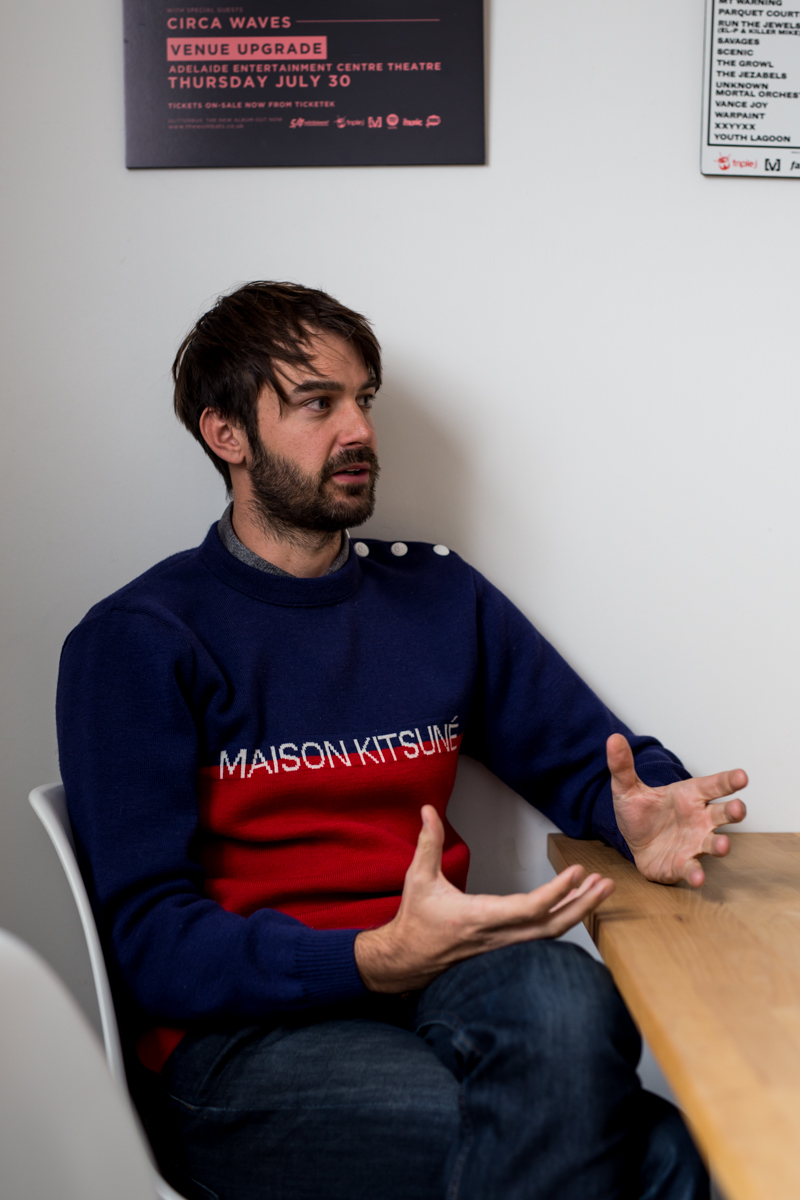
Craig Lock
Craig is happy to have been delivered even a vague roadmap for the removal of restrictions at Friday’s press conference, and is considering opening for trade at 12:01 Saturday night, the moment the restrictions are eased to a 100-person cap for venues and density of one-person-per-four-square-metres.
“That’s fewer people than we were doing previously, but we can do something again. So we’ll see what happens, I guess, from here,” Craig says.
“I think there might be a bit of excitement, even though the lockdown was very short in the end. But I think people would still be keen to get out, potentially.”
A lot of harm has already been done though, with Lion Arts gigs having been cancelled, and the uncertainty of the state’s border rules making it difficult to book interstate acts, which Craig sees as vital to the venue’s recovery from the economic fallout of COVID-19.
“We had Jaguar Jonze who was going to play on 4th of December. It’s going to be impossible to know if the borders will be open by then, so I don’t know what will happen with that show,” Craig says.
“And I guess now being capped at 100 people and one person per four square metres, it’s a different capacity to what we were booking a lot of things under. So I don’t know what’s going to happen with the rest of our bookings. I guess we’ll have to wait and see what happens Monday or Tuesday, maybe they might make some more announcements about wheeling back the restrictions further, back to what they were.
“If that happens quickly, then we might be able to keep everything we were doing, and if not, I guess we just reassess and adapt as we have been for the last eight months or whatever it’s been,” he laughs.
Now able to books gigs, Lion Arts can make use of the grant money it has been allocated, and that which is hopes to see in future grant rounds.
“They literally just opened up $800,000 worth of funding when the SAM Awards were on. They announced that then, and there’s a process to apply for that now, so a venue can get $25,000, which is meant to be for booking artists,” Craig says.
“You have to spend all of that money on booking artists from South Australia, or sound techs and venue staff relating to putting gigs on.
“They’ve also got project support grants up to $15,000, so you can apply for that as well. So, in theory, venues could get up $40,000, but $25,000 was meant to be for paying artists and staff.”
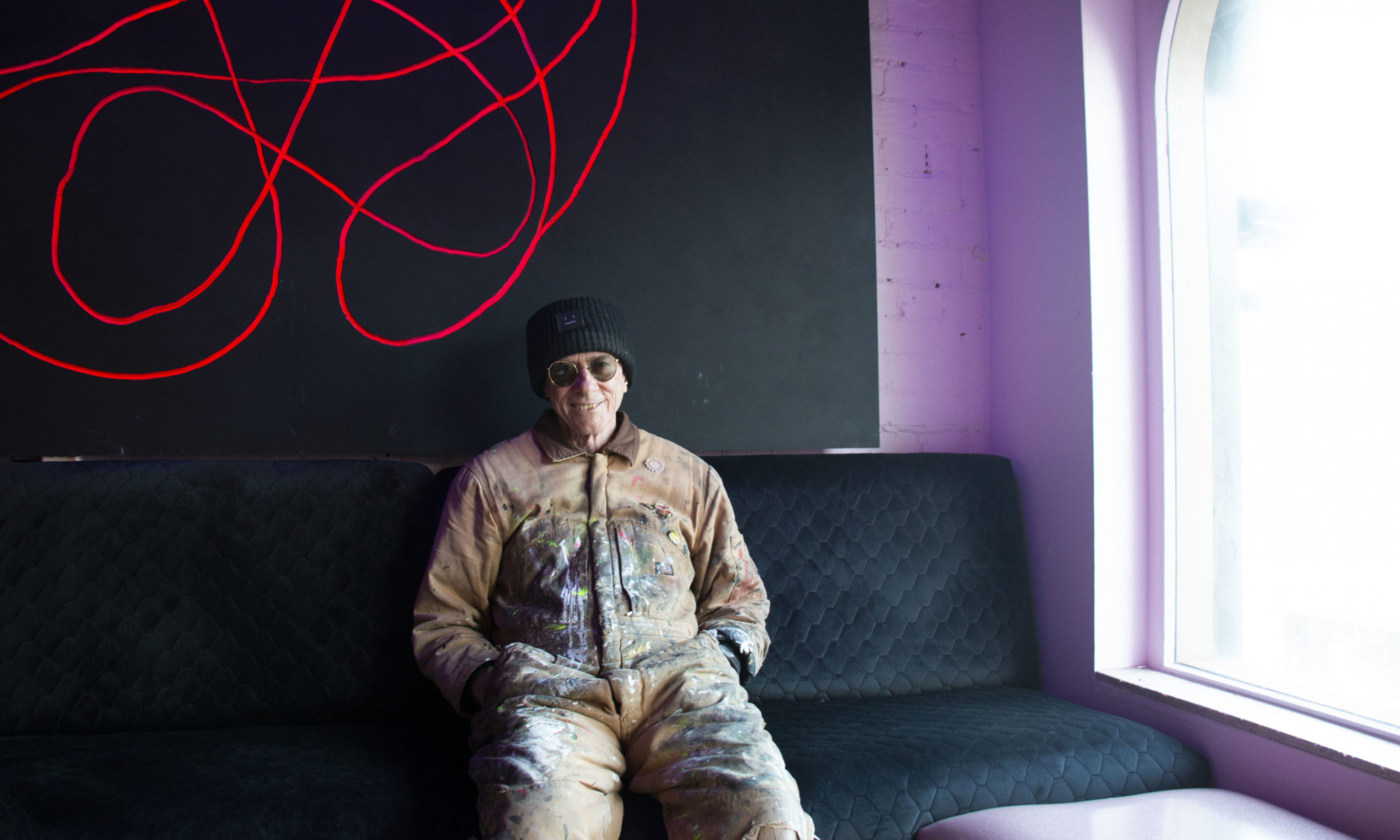
Driller Jet Armstrong. This image: Angela Skujins
Over on Rundle Street, Driller Jet Armstrong made the decision on Monday night to close Sugar for two weeks while the Parafield cluster comes under control.
“I just thought, let’s just shut this down for a couple of weeks and see where it goes. Because that way our staff are safe, our patrons are safe, we’re seen to be doing the right thing, which we are, which is a good thing for us. It’s good for our brand, to be on the front foot and take this shit seriously,” Driller says.
Driller, Craig and Tam all agreed the lockdown was the appropriate response to the outbreak.
“We have to do this [lockdown]. We have to. This is the right thing to do,” Driller says.
“But the wrong thing to do was to let it get out in the first place. And I’m not going to let [the State Government] off for that.
“They should have learned the lessons from Melbourne. They should have learned those lessons. That this is where it can escape from. If it’s not out anywhere in the community, the only way it can escape is from people who are working there in hotel quarantine. And all of those people should be vetted and should be professionals. Full hazmat, the whole bit.”
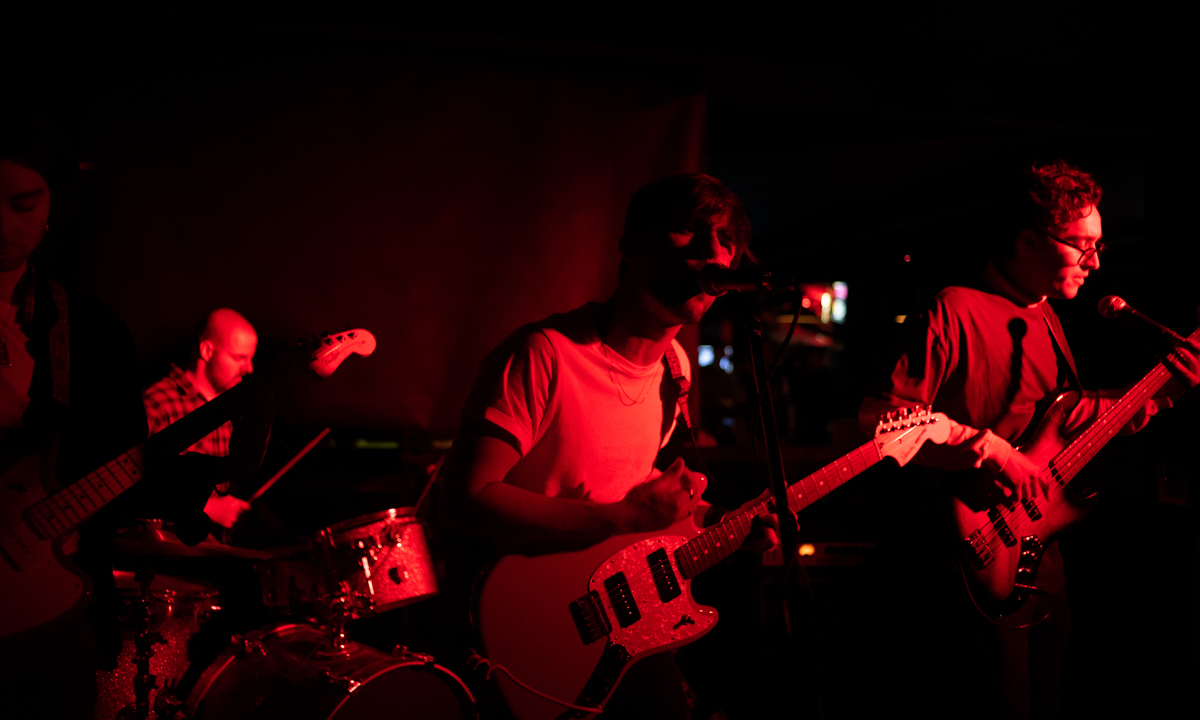
Live music inside Sugar. This image: Luke Eblen
Though the State Government has announced how restrictions will be lifted in the coming days, Driller says Sugar will remain closed for the duration of the two weeks he planned to shut for.
Coming out of this lockdown, Driller hopes to see the stand-up consumption of alcohol brought in quickly.
“Vertical drinking needs to come in ASAP. Otherwise, what’s the point?” he says.
Once the venues are able to trade again, Tam, Craig and Driller all hope Adelaide’s music community will continue to come out and support them. This will be key to their long-term survival.
“As soon as we’re open, keep coming back,” Tam says.
“Go to venues, go see bands. I know everyone just wants to go and hang at a cool bar or something, but venues are just haemorrhaging, and it’s about people coming and paying a bit of money to see the band and have a few drinks.
“And just cooperate with the rules, as well, would be awesome.”
The closure of venues, Driller says, will do irreparable harm to Adelaide’s cultural identity.
“You don’t want to lose your institutions, you know? You just don’t,” he says.
“Especially when the institution isn’t tired and old. When it’s constantly reinventing itself and moving through the challenges and the times.
“It is a credit to us that we’ve survived nearly 20 years. With lock-out laws and massive increases in liquor licenses – which is still $15,000, by the way, a year, for us, which we can’t afford.”
Driller is thankful for the government grants he’s already received, which have allowed him to invest in the venue amidst a pandemic, and he’s applied for some more cash from the Federal Government to create a year-long live music program.
However, he hopes Sugar, other venues, and South Australia’s young people will see more investment.
“We employ young people. Young people have fun in our venues. Support young people as well,” he says.
“I mean, they’re going to be paying for this for a fucking long time, right? They’re going to be paying for this for a very long time. So they’ve got a fair say in what goes on, I think. And venues like ours that are about youth culture should be more supported, simple as that.”
The Minister for Innovation and Skills David Pisoni tells CityMag, “I have recently announce $500,000 to support venues to host live music and $320,000 for artists and music businesses.
“Grants of up to $25,000 each are available to support venues to host live music from the start of next year
“Grants of up to $15,000 will support musicians getting their bands back together.”
For more information on grant programs for venues and artists, visit the Music SA and Music Development Office websites.
Visit SA Health for more information relating to the COVID-19 pandemic. Visit our sister publication InDaily for news updates. If the COVID-19 news cycle is affecting your mental health and wellbeing, call the SA COVID-19 Mental Health Support Line on 1800 632 753.



